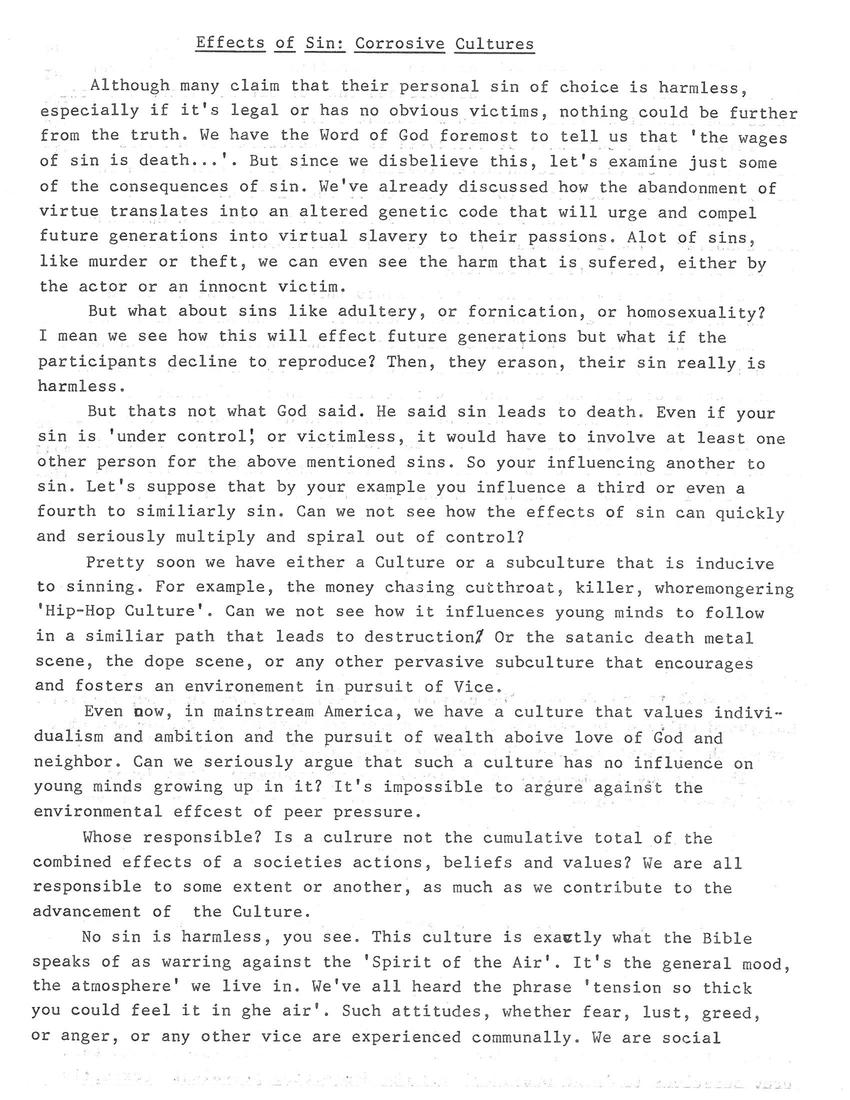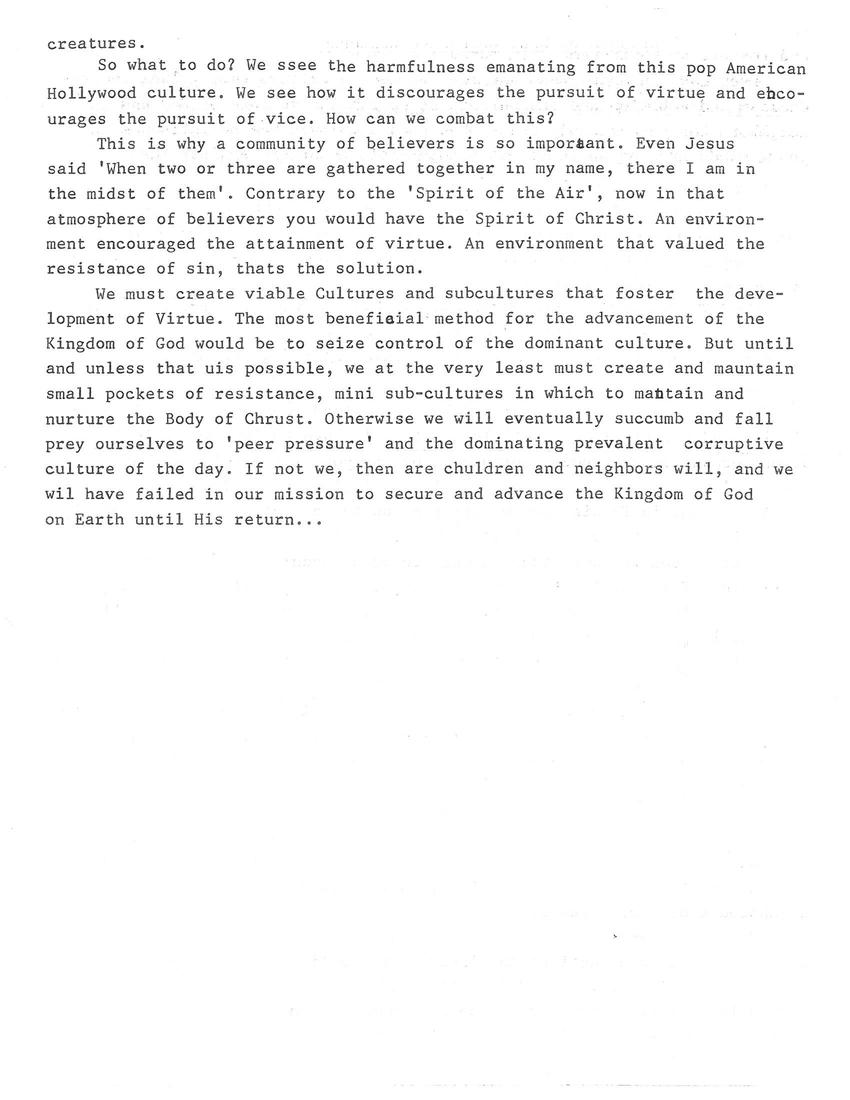
Transcription
Effects of Sin: Corrosive Cultures
Although many claim that their personal sin of choice is harmless, especially if it's legal or has no obvious victims, nothing could be further from the truth. We have the Word of God foremost to tell us that "the wages of sin is death...". But since we disbelieve this, let's examine just some of the consequences of sin. We've already discussed how the abandonment of virtue translates into an altered genetic code that will urge and compel future generations into virtual slavery to their passions. A lot of sins, like murder or theft, we can see the harm that is suffered, either by the actor or an innocent victim.
But what about sins like adultery, or fornication, or homosexuality? I mean, we see how this will effect future generations but what if the participants decline to reproduce? Then, they reason, their sin really is harmless.
But that's not what God said. He said sin leads to death. Even if your sin is 'under control', or victimless, it would involve at least one other person for the above mentioned sins. So you're influencing another to sin. Let's suppose that by your example you influence a third or even a third or even a fourth to similarly sin. Can we not see how the effects of sin can quickly and seriously multiply and spiral out of control?
Pretty soon we have either a culture or a subculture that is inductive to sinning. For example, the money chasing, cut-throat, killer, whoremongering 'hip-hop culture'. Can we not see how it influences young minds to follow in a similar path that leads to destruction? Or the satanic death metal scene, the dope scene, or any other pervasive subculture that encourages and fosters an environment in pursuit of vice.
Even now, in mainstream America, we have a culture that values individualism and ambition and the pursuit or wealth above love of God and neighbour. Can we seriously argue that such a culture has no influence on young minds growing up in it? It's impossible to argue against the environmental effects of peer pressure.
Who's responsible? Is a culture not the cumulative total of the combines effects of a society's actions, beliefs and values? We are all responsible to some extent or another, as much as we contribute to the advancement of the culture.
No sin is harmless, you see. This culture is exactly what the Bible speaks of as warring against the 'spirit of the air'. It's the general mood, the atmosphere we live in. We've all heard the phrase 'tension so thick you could feel it in the air'. Such attitudes, whether fear, lust, greed or anger, or any other vice, are experienced communally. We are social creatures.
So what to do? We see the harmfulness emanating from this pop American Hollywood culture. We see how it discourages the pursuit of virtue and urges the pursuit of vice. How can we combat this?
This is why a community of believers is so important. Even Jesus said, 'When two or three are gathered together in my name, there I am in the midst of them.' Contrary to the 'spirit of the air', now in that atmosphere of believers you would have the Spirit of Christ. An environment encouraged the attainment of virtue. An environment that valued the resistance of sin, that's the solution.
We must create viable cultures and subcultures that foster the development of virtue. The most beneficial method for the advancement of the Kingdom of God would be to seize control of the dominant culture. But until and unless that is possible, we at the very least must create and maintain small pockets of resistance, mini-subcultures in which to maintain and nurture the Body of Christ. Otherwise we will eventually succumb and fall prey ourselves to 'peer pressure' and the dominating prevalent corruptive culture of the day. If not we, then our children and neighbors will, and we will have failed in our mission to secure and advance the Kingdom of God on Earth until His return...
Other posts by this author
|
2018 feb 12

|
2017 dec 21

|
2017 nov 28

|
2017 sep 2

|
2017 aug 20

|
2017 jul 23

|
More... |



Replies (4)
I wanted to ask: what are your views on issues that Christ/the Gospels never touch on, such as homosexuality? Is it enough that a couple of lines elsewhere speak of them? As the Bible as it stands has been translated many times, and was put together at a meeting around 1000 years ago, with many elements discarded, I find it difficult to understand how every word can be considered equally valid. What are your thoughts?
Best wishes,
Elizabeth-Anne